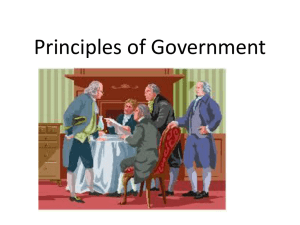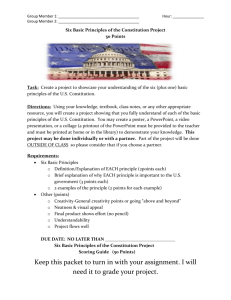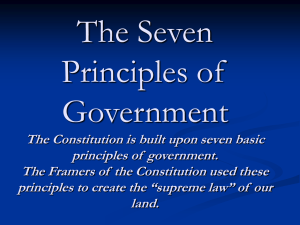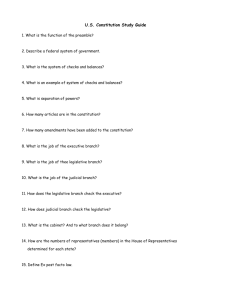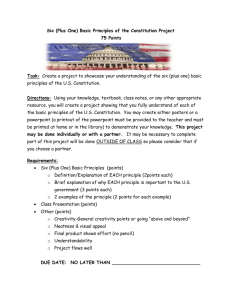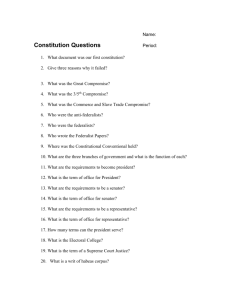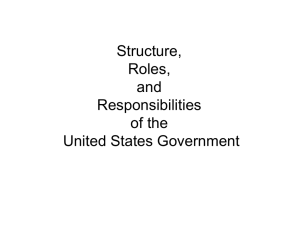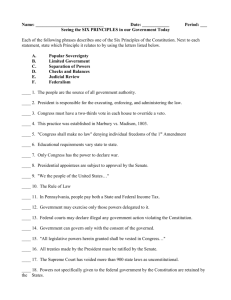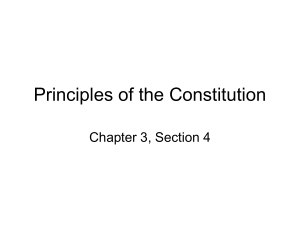2010-2011 American Government Week 6 District Test
advertisement
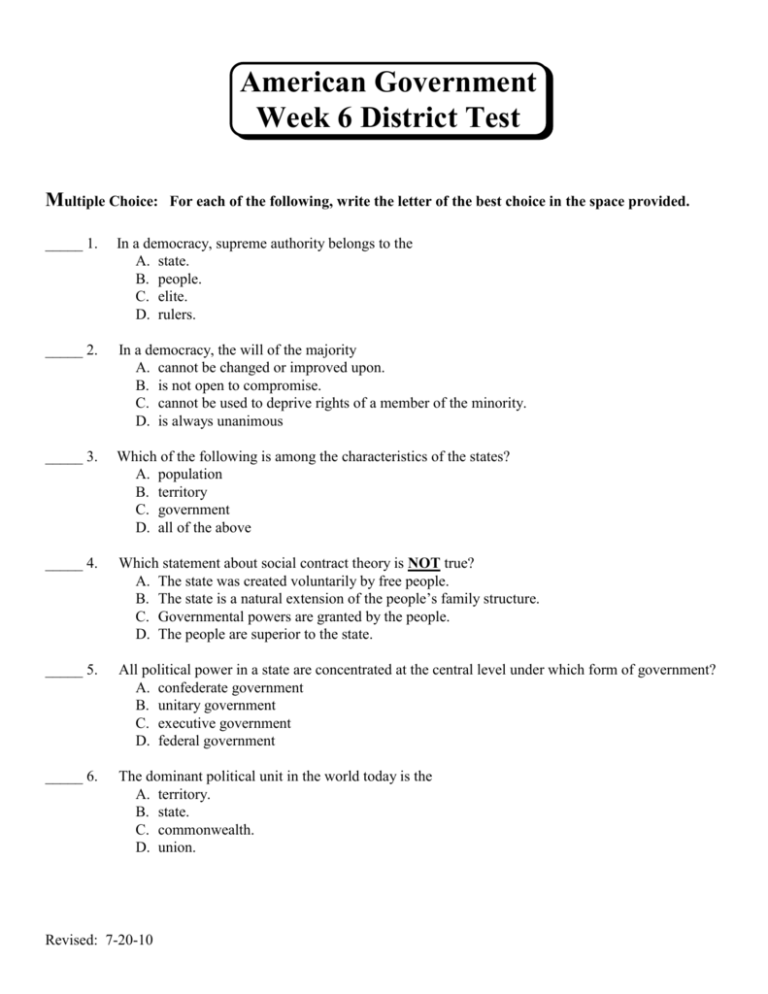
American Government Week 6 District Test Multiple Choice: For each of the following, write the letter of the best choice in the space provided. _____ 1. In a democracy, supreme authority belongs to the A. state. B. people. C. elite. D. rulers. _____ 2. In a democracy, the will of the majority A. cannot be changed or improved upon. B. is not open to compromise. C. cannot be used to deprive rights of a member of the minority. D. is always unanimous _____ 3. Which of the following is among the characteristics of the states? A. population B. territory C. government D. all of the above _____ 4. Which statement about social contract theory is NOT true? A. The state was created voluntarily by free people. B. The state is a natural extension of the people’s family structure. C. Governmental powers are granted by the people. D. The people are superior to the state. _____ 5. All political power in a state are concentrated at the central level under which form of government? A. confederate government B. unitary government C. executive government D. federal government _____ 6. The dominant political unit in the world today is the A. territory. B. state. C. commonwealth. D. union. Revised: 7-20-10 _____ 7. A federal government is one in which A. all power is concentrated in the central government. B. power is divided between a central government and local governments. C. power is divided between the executive branch and the legislative branch. D. bureaucrats organize and control government. _____ 8. A confederate government A. is common in the modern world. B. has never been used in the United States. C. is seen today in the European Union. D. is one in which all political power is located in the state’s capital. _____ 9. The Divine Right Theory of the origins of government is characterized by A. the God given right to rule. B. rule by the people. C. the one in charge of the military rules. D. the gradual evolution of power to larger and larger units. _____ 10. Leaders in a dictatorship A. derive their power from the people. B. hold absolute power over the people. C. are common in free societies. D. are limited in power by other branches of government. _____ 11. The leader in a Parliamentary form of government is called A. the Prime Minister or Premier. B. the President. C. the Emperor. D. the King _____ 12. With the words “We the People”, the Constitution established its authority on the basis of A. popular sovereignty. B. separation of powers. C. limited government. D. Divine Right. _____ 13. Which of the following best describes the concept of limited government? A. All political power belongs to the people. B. Government must operate within certain rules established by the people. C. The people must behave according to rules set by the government. D. Government is free to use any means to pursue its goals. _____ 14. The president’s power to veto an act of Congress is an example of A. judicial review. B. checks and balances. C. limited government. D. popular sovereignty. Revised: 7-20-10 _____ 15. Which of the following is an example of checks and balances? A. The U.S. Supreme Court declares that a law is unconstitutional. B. Power is divided between the National Government and the States. C. The Senate observes senatorial courtesy. D. Congress passes a law. _____ 16. The formal amendment process is an example of the concept of A. federalism. B. the separation of powers. C. checks and balances. D. parliamentary government. _____ 17. The Constitution defines the separation of powers as the relationship between A. federal, state, and local governments. B. legislative, executive, and judicial branches. C. political parties. D. presidential and parliamentary governments. _____ 18. The distribution of powers on a geographic basis is called A. federalism. B. constitutionalism. C. dictatorship. D. popular sovereignty. _____ 19. The Constitution can be changed informally by A. actions taken by the president. B. key decisions of the Supreme Court. C. custom. D. all of the above. _____ 20. The first ten amendments to the Constitution are known as A. the Articles of Confederation. B. the Code of Hammurabi. C. the Bill of Rights. D. Declaration of Independence. Revised: 7-20-10 American Government Week 6 District Test Answer Key 1. 2. 3. 4. 5. 6. 7. 8. 9. 10. 11. 12. 13. 14. 15. 16. 17. 18. 19. 20. Revised: 7-20-10 B C D B B B B C A B A A B B A A B A D C

